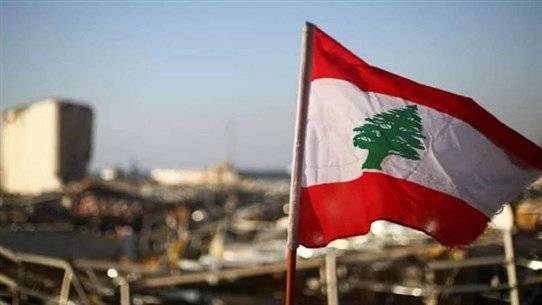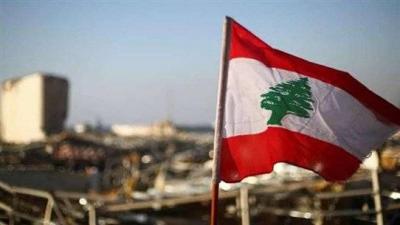Lebanon is entering a week and a month filled with significant events that may clarify some aspects of constitutional obligations now intertwined with vital issues and the comprehensive collapse gripping the country for about three months. There are fears that all political, financial, and popular tensions have become a ticking time bomb that could explode if its trigger is not disabled in the last quarter of an hour.
The first week of August is marked by the Lebanese army's celebration tomorrow, coinciding with crucial negotiations involving the American mediator Amos Hochstein regarding maritime delimitation between Lebanon and Israel, who arrives in Beirut today. It also coincides with the second anniversary of the port explosion on the fourth of August, events that will overshadow the behind-the-scenes movements that are intensifying with the countdown to the constitutional deadline for electing a new president on August 31 (until October 31). This election has become central to the Lebanese scene, connected to regional developments.
While attention focuses on the army's celebration, considering it will mark the first face-to-face meeting between President Michel Aoun and caretaker Prime Minister Najib Mikati, who has been tasked with forming the new government for about three weeks, Speaker Nabih Berri is trying to facilitate a meeting between them to engineer what he calls a "miracle" that would enable the establishment of an "impossible government." Hochstein's mission is under a title accompanied by optimistic atmospheres that need to be assessed for their authenticity.
There are indications that Hochstein's visit will result in the revival of the "Naqoura table," that is, indirect negotiations under the United Nations flag with U.S. mediation, which may serve as a "time-out" needed for the "regional moment" before defining the features of complex regional and international issues. These include concerns such as the Iranian nuclear negotiations and the "gas war" between Russia and the West, which has flared up as a prominent offshoot of the conflict in Ukraine. The Karish gas field's resources have become one of the "oxygen pipes" for Europe against gas shortages.
On the eve of Hochstein's arrival and following Foreign Minister Abdullah Bou Habib's remarks that Lebanon has received positive indications about progress in the negotiations, Israeli reports have also mentioned positives, suggesting proposals likely to be discussed at the Naqoura table. These include Israel's efforts to establish "economic rights" in the disputed region between lines 1 (Israeli) and 23 (Lebanese, documented with the UN), while Beirut proposed to forgo line 29 (which partially includes the Karish gas field) in exchange for acquiring the area south of line 23, ensuring full access to the Qana field.
Israeli reports indicate that with the suggestion of "economic rights" for any field discovered in the disputed area and a proposal for equitable profit-sharing, Israel aims to compensate for the "maritime concession" in the fields with guarantees for rights likely targeting the utilization of oil wealth from the Lebanese block 8 or a portion taken by the Frederick Hof line or the modified Hochstein line. There are questions about Lebanon's acceptance of such proposals given two factors: first, Berri's confirmation yesterday of "no concession or compromise on Lebanon's oil wealth or normalization through an international company," emphasizing that "going to Naqoura is better than going somewhere else, and the agreement among the three presidents is to return to the framework agreement." The second factor is the deterrence equation established by Hezbollah, recently positioned alongside military options under the banner "no Israeli extraction from any fields as long as there is no Lebanese exploration," demanding an agreement before September. Otherwise, all options will remain open.
In parallel with this issue, the second anniversary of "Beirutshima" signals a potential revival of the spirit of the October 17, 2019 uprising, fueled by harsh living conditions that have intensified in recent days, with the dollar's rise in the parallel market surpassing 30 thousand Lebanese pounds. The burgeoning bread crisis will accompany the Lebanese reality in the coming period, both in expansion and contraction, especially with the removal of support for flour (designated for Arabic bread) after nine months. Additionally, the anniversary coincides with the memory of the Hiroshima explosion that turned half of Beirut into rubble and ashes, as the collapse of the port silos, which has been weakened by fires for over two weeks, is just a matter of time, while the authorities merely "guard" its imminent collapse and impose a cordon around it.
Meanwhile, families of over 220 victims and 6,500 injured reject what they consider a decision to erase the traces of "the crime of the century" and its scene, insisting that the silos remain a witness to one of the three largest non-nuclear explosions in history instead of being transformed into a "martyr" out of premeditated design. Yesterday, the "Free Patriotic Movement" (Aoun's party) notably reminded that "the collapse of the silos is likely at any moment, in addition to the increased health risks resulting from the fermentation of grains and the toxic gases emitted from them," stressing the "necessity of removing the collapsed structure just as happened with the Twin Towers after the September 11 attacks, and building a replica for future generations in a nearby location."
The movement emphasized that removing the structure allows the port's development and the reconstruction of the silos, which cannot be restored or turned into a replica for scientific reasons confirmed by studies. It called on all political stakeholders to address this issue scientifically, humanely, ethically, and nationally, away from any populist grandstanding that yields no benefit.
Regarding the presidential file, which has become the political axis of the Lebanese reality and a focal point for external interest in the situation in the "Land of the Cedars," part of a significant meeting between French President Emmanuel Macron and Saudi Crown Prince Mohammed bin Salman, it was noted yesterday that Berri announced, "The President must have a Christian flavor and an Islamic flavor, but most importantly, a national flavor." He emphasized that "any president calling for a presidential election session in anticipation of any optimism or hope is hasty, and we must take advantage of August to pass the reform laws."
It was impossible to ascertain whether Berri's comments about not calling a session before establishing "hope and optimism" implied linking the initiation of the sessions he reportedly intends to call starting the first week of September to a prior agreement on a president. This would indicate a retrograde step that could be associated with the desire of the Shiite duo (Amal and Hezbollah) to synchronize the presidential timing with regional developments, avoiding premature advancements in this file, which is unlikely to happen outside the equation that Tehran, via Hezbollah, holds the primary say and that other influential countries have "veto power," or that it merely serves as a push for the required reforms from the International Monetary Fund as pressure on everyone domestically or out of a desire to entice certain "barter" agreements.
In another context, Lebanon was engaged in two developments: first, Ukraine's protest against Lebanon's involvement in the trade of stolen Ukrainian goods, warning that this could harm bilateral relations between Kyiv and Beirut, especially as Russia attempts to sell stolen Ukrainian wheat to various countries, including Lebanon, referring to the vessel Laodicea docked at the Tripoli port, owned by the Syrian ports authority, carrying quantities of wheat and barley stolen from Ukrainian stores seized by Russian forces recently. Notably, the Public Prosecution has confiscated the vessel "Laodicea" for 72 hours, preventing it from departing and transferring the investigation in this case to the Investigation Unit in the Internal Security Forces, following a summoning submitted by the Ukrainian embassy to the emergency court.
Foreign Minister Abdullah Bou Habib revealed that Lebanon has received several protests and warnings from several Western countries following the arrival of a Syrian-flagged vessel loaded with flour and barley at Tripoli port. He stated that the concerned parties in Lebanon are currently examining the ship, and Lebanon has not yet been able to determine the source of its cargo, with appropriate action to be taken later. The second issue is a "border" dispute in the south in the town of Ramish, adjacent to occupied Palestinian territories, where a group of Hezbollah members clashed with local residents, predominantly Christian, who gathered to demand protection from the Lebanese army and UNIFIL forces.
Reports indicated that the dispute arose when one of Ramish's residents (on Friday afternoon) cut down firewood in the Qatmon area of his town, but the "Green Without Borders" association (accused of being a Hezbollah front) intervened to stop him from continuing. The situation escalated when Hezbollah elements intervened, leading to the use of firearms and gunfire. Hezbollah supporters accused the citizen and, behind him, the "Lebanese Forces" of cutting down trees to expose a Hezbollah border point, meeting with the enemy's tree removal activities on the other side. Former Minister May Chidiac questioned, "What is the end of this bullying? Does Hezbollah want to uproot what remains of the Christians in the south after terrorizing them in 2000 and pushing even innocent children to flee into Israel?"
Linking this tense atmosphere in Ramish with the profoundly negative sentiments triggered by the arrest of Bishop Musa Al-Hajj at the Naqoura border crossing and the confiscation of his passport and financial and medical aid, the Church raised its voice against this development. Chidiac accused Hezbollah of "fabricating the issue of Bishop Al-Hajj to enable Sayyed Hassan Nasrallah to announce the end of the Naqoura crossing exemption and impose crossing from Jordan."




